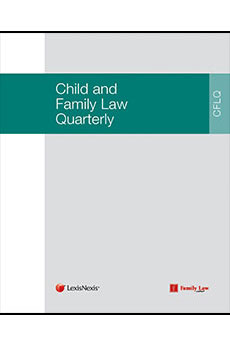Our articles are written by experts in their field and include barristers, solicitors, judges, mediators, academics and professionals from a range of related disciplines. Family Law provides a platform for debate for all the important topics, from divorce
and care proceedings to transparency and access to justice. If you would like to contribute please email
emma.reitano@lexisnexis.co.uk.
Benefits changes will increase child poverty, think tank finds
© Copyright LexisNexis 2025. All rights reserved.
New research from the Institute for Fiscal Studies (IFS) has indicated that, were the Government to stick to current plans for changes to benefits, including the roll-out of universal credit, between 2015/16 and 2021/22, absolute child poverty would increase by around 4%.The Living standards, poverty and inequality in the UK: 2017–18 to 2021–22 report was produced with funding from the Joseph Rowntree Foundation. It is based on forecasts using data from the Office for Budget Responsibility.
Article continues below...
Child and Family Law Quarterly
"The final professional word for the practitioner...
£80
Family Law
"the principal (monthly) periodical dealing with...
£389
Findings
The IFS finds that, if the Government keeps to its plans to change how benefits are distributed, with particular regard to the roll-out of universal credit, between 2015-16 and 2021-22:
- absolute child poverty would increase by 4%—of that increase, around three-quarters (equivalent to 400,000 children) is attributable to benefit changes;
- the freeze to most working-age benefits means that around 7.5 million low income households will see their benefit entitlements cut by over £500 per year in real terms;
- absolute child poverty is projected to increase the most in Wales, the North East, East Midlands and Northern Ireland;
- across the whole of the UK, absolute poverty is projected to remain roughly unchanged between 2015–16 and 2021–22.
The report concludes:
‘In every region, benefit cuts and limited growth in real earnings mean that absolute poverty is unlikely to fall by much, and poorer families with children are likely to see significant falls in their real incomes.’







